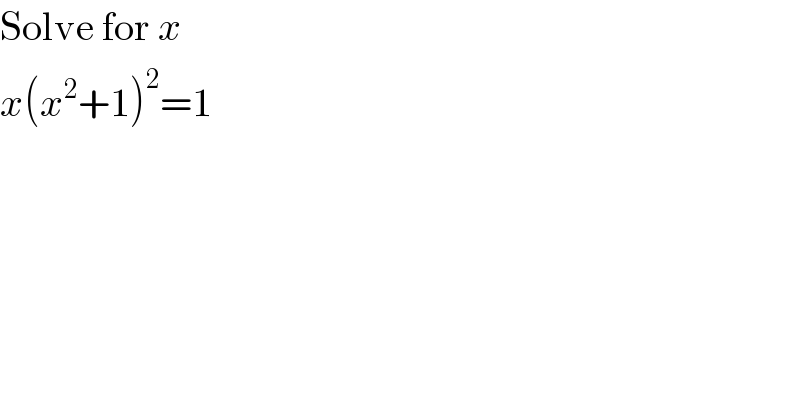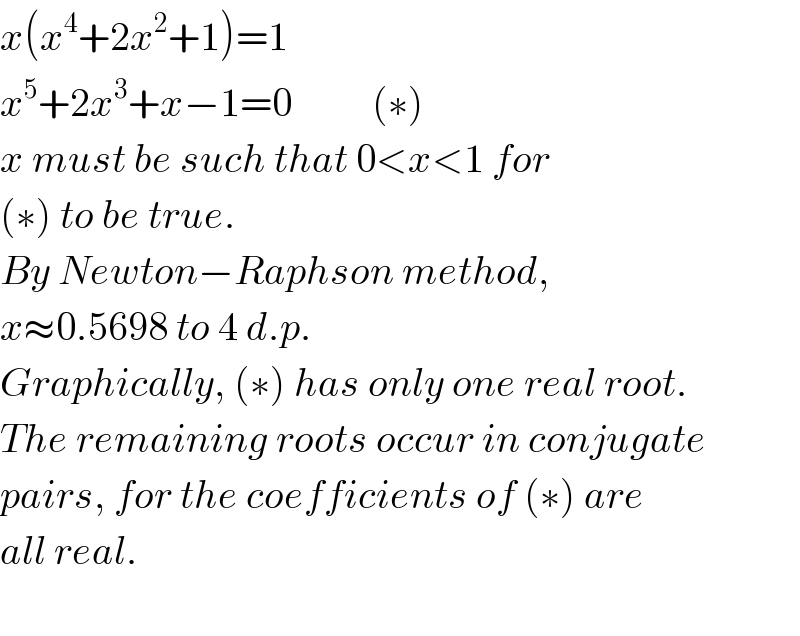Question Number 6802 by FilupSmith last updated on 27/Jul/16

$$\mathrm{Solve}\:\mathrm{for}\:{x} \\ $$$${x}\left({x}^{\mathrm{2}} +\mathrm{1}\right)^{\mathrm{2}} =\mathrm{1} \\ $$
Commented by Yozzii last updated on 28/Jul/16

$${x}\left({x}^{\mathrm{4}} +\mathrm{2}{x}^{\mathrm{2}} +\mathrm{1}\right)=\mathrm{1} \\ $$$${x}^{\mathrm{5}} +\mathrm{2}{x}^{\mathrm{3}} +{x}−\mathrm{1}=\mathrm{0}\:\:\:\:\:\:\:\:\:\:\left(\ast\right) \\ $$$${x}\:{must}\:{be}\:{such}\:{that}\:\mathrm{0}<{x}<\mathrm{1}\:{for} \\ $$$$\left(\ast\right)\:{to}\:{be}\:{true}. \\ $$$${By}\:{Newton}−{Raphson}\:{method},\: \\ $$$${x}\approx\mathrm{0}.\mathrm{5698}\:{to}\:\mathrm{4}\:{d}.{p}. \\ $$$${Graphically},\:\left(\ast\right)\:{has}\:{only}\:{one}\:{real}\:{root}. \\ $$$${The}\:{remaining}\:{roots}\:{occur}\:{in}\:{conjugate} \\ $$$${pairs},\:{for}\:{the}\:{coefficients}\:{of}\:\left(\ast\right)\:{are}\: \\ $$$${all}\:{real}. \\ $$$$ \\ $$
